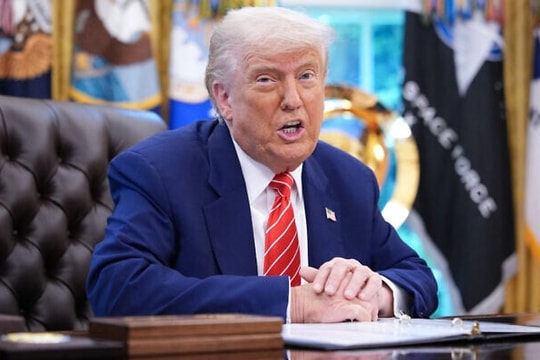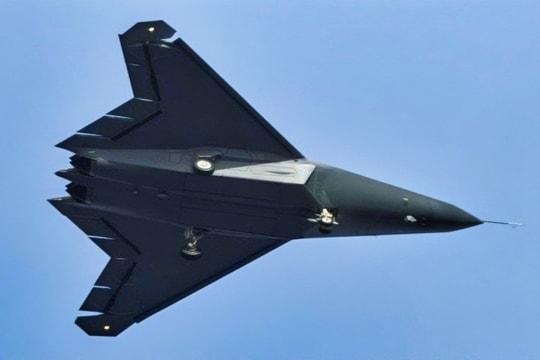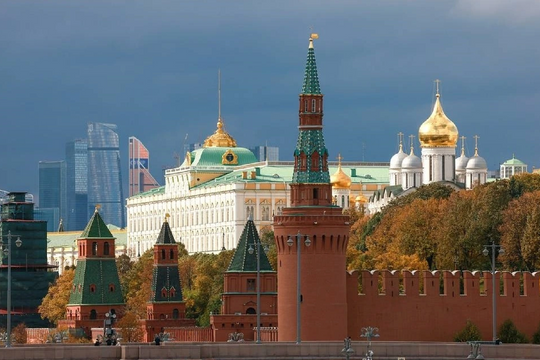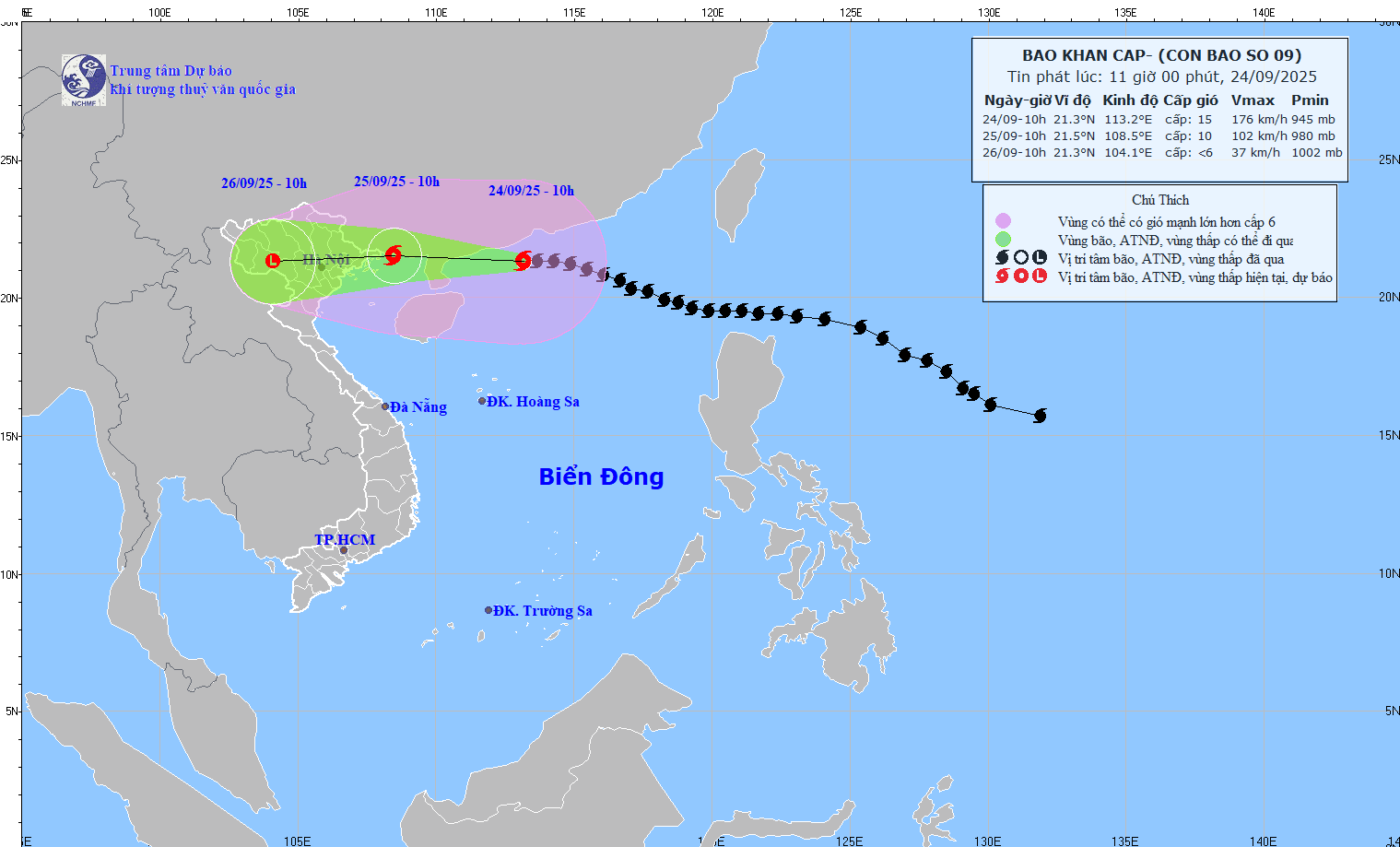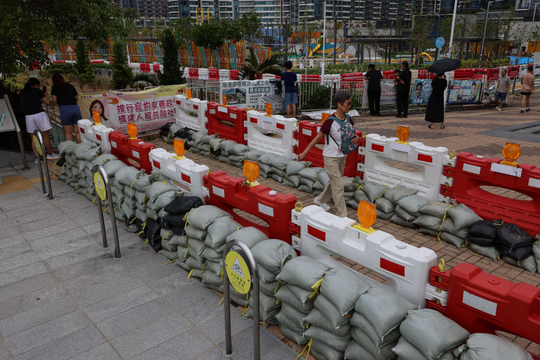Why does Trump need to avoid conflict with China?
In a recent report, China experts said that Mr. Trump should not abolish long-standing US policy on the Taiwan (China) issue.
In an interview with DW (Germany), Andrew J. Nathan, professor of political science at Columbia University, one of the authors of this report, explained why such a move by the US would be extremely dangerous.
 |
| Experts advise Mr. Trump to avoid collision with China. Photo: Getty Images. |
Before taking office, Donald Trump questioned America's long-standing adherence to the "One China" policy, which holds that there is only one China in the world and the government in Beijing is the legitimate representative of that country.
Any country that wishes to establish diplomatic relations with the People’s Republic of China must accept the “One China” policy, reject relations with the Taiwanese government, and limit arms exports to the territory. The United States has complied with these requirements for the past 37 years, while maintaining numerous support channels for the Taiwanese government.
However, Mr. Trump's rhetoric on this issue has angered officials in Beijing and caused deep concerns about the possibility of a change in US policy regarding the Taiwan issue.
In a report recently released by the non-profit organization Asia Society and the University of California San Diego (UCSD), a group of former US officials and scholars advised the administration of new President Donald Trump to avoid conflict with China over the Taiwan issue, saying that such a move would be “extremely dangerous.”
The nature of relations between major countries is that cooperation is inevitable.
The report argues that US-China relations are “at a crossroads” and describes growing confrontation between the two countries amid China’s territorial claims in the South China Sea and East China Sea.
However, in an interview with DW, Andrew J. Nathan, one of the authors of the report “Reaffirming America’s Commitment to Asia”, said that President Donald Trump will maintain the current status quo of the “One China” policy and the disputes between the two countries. Mr. Andrew J. Nathan pointed out that President Trump “does not always do what he says and seems very likely to change course”.
According to Andrew J. Nathan, the US has no interest in changing its stance on the “One China” policy and so far Mr. Trump has not made any changes, although public opinion has been abuzz because of statements from the White House.
Like any relationship between major countries in the world, the US and China have many areas that need cooperation to resolve, the most prominent of which is the nuclear issue of the Democratic People's Republic of Korea.
The report “Reaffirming America’s Commitment to Asia” argues that the Trump administration views the North Korean nuclear issue as a very serious threat. However, Andrew J. Nathan argues that the US will have difficulty convincing China to cooperate on this issue.
US-China cooperation on the North Korean nuclear issue is also believed to depend largely on the overall nature of the relationship. If the US challenges China’s interests with a trade war or suddenly questions the “One China” policy, the hope of cooperation with the government in Beijing on other issues becomes even more fragile.
In the East Sea, both the US and China must "play" by the rules.
Regarding the South China Sea disputes, the report “Reaffirming America’s Commitment to Asia” by the Asia Society and UCSD recommends that the priority of the administration in Washington should be to push the US Senate to ratify the 1982 United Nations Convention on the Law of the Sea.
For a long time, China has argued that the US itself has not ratified the 1982 United Nations Convention on the Law of the Sea, so it cannot "raise its voice" to deter or instruct countries with disputes in the East Sea or East China Sea what to do.
“This report is not written for any particular administration,” said Andrew J. Nathan, a senior fellow at the Center for Strategic and International Studies. “We recommend what we believe is the best policy for the United States regarding China, although we are aware that many of the recommendations are contrary to what President Donald Trump, the Republican Party, and the Senate have been saying for years. The likelihood of Trump taking action on this issue is low, but we recommend that the administration do so.”
Mr. Andrew J. Nathan also pointed out that the US's relationship with Asian countries, especially key security allies such as Japan and South Korea, is not too dependent on free trade agreements such as the Trans-Pacific Partnership (TPP), which are more of a political symbol of the US's commitment to Asia than an economic benefit for the US.
According to him, if the Trump administration goes one step ahead and negotiates better bilateral economic agreements with TPP participating countries, or revives TPP in another form, it will be a signal to Asian countries to reassure that the US is still committed to a significant presence in the region.
But besides that, he said that countries in the region still need to "closely monitor US policy to see how trustworthy its security commitments are under President Trump"./.
According to VOV
| RELATED NEWS |
|---|

